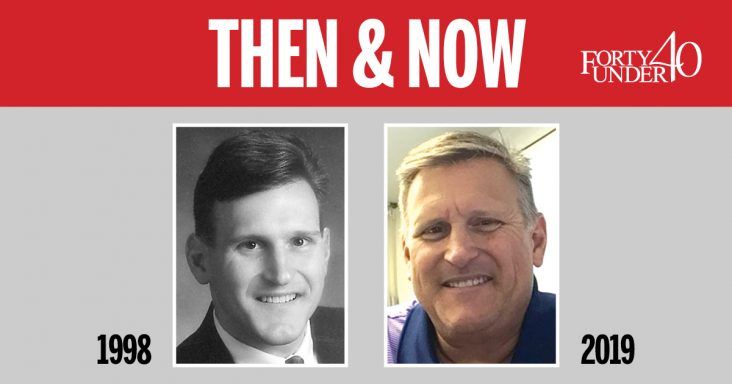Then & Now: Coleman helps hospitals with medical software
by September 13, 2019 1:51 pm 626 views

Editor’s Note: The following story appeared in the Sept. 2 issue of the Northwest Arkansas Business Journal. “Then & Now” is a profile of a past member of the Business Journal’s Forty Under 40 class.
———————–
John J. Coleman has worked for multiple healthcare providers to train their staff to use software for digital recordkeeping.
Coleman, 51, has worked as a senior consultant for healthcare consulting firm Divurgent of Virginia Beach, Va., for about three years. He not only trains healthcare providers on how to use Epic healthcare software, but he also builds the software to meet customers’ needs. He’s been a consultant for Epic software for about eight years and has worked with other consulting companies like Divurgent.
He was assistant director of nonprofit Our Farm Inc. when the Northwest Arkansas Business Journal named him to its Forty Under 40 class in 1998. Coleman grew up in Rogers and earned a bachelor’s degree in communications from the University of Arkansas in 1991. He worked for Our Farm for about six years after starting as a nonresidential caseworker.
He became involved in healthcare software in 2007 when he started at Mercy training healthcare providers on how to use the software when it established a new provider for electronic medical records. Since then, he’s been traveling the United States to set up and train healthcare providers on the Epic software.
He works on one contract at a time supporting healthcare providers with the software. Contracts can take from one month to two or three years. Some of the providers he’s completed work for include Bon Secours Health System, Kaiser Permanente, Cedars-Sinai and MD Anderson. Over the past two months, he has provided training on the software for anesthesiologists and surgeons who work in the operating room at Hackensack Meridian Health in New Jersey. Depending on the size of the contract, he could complete it by himself or work with a team of more than 100 people. He’s also managed a group of about 25 credentialed trainers while working on a contract in Maine.
Coleman said the most challenging part of the job has been spending time away from family. He travels for work and spends weekdays training people in person at healthcare facilities. He and his wife, Cindy, have two daughters, and they stay in touch through FaceTime and text messages.
Another challenging aspect of the job depends on how those who use the software adapt to it.
“If they are going from like a paper system, where they truly have paper charts, and they are going to an electronic medical record, which is what Epic is, it’s really like trying to do baby steps along the way,” Coleman said. “We’re in an information age where all aspects of our lives are basically on a computer at some point. Healthcare is something that is just now getting to where it’s effective. By using the computers as a tool, like a stethoscope or an endoscope, to improve patients’ care.”
Before he started working as a healthcare software consultant, he was a territory account manager for Waste Management. He spent about six years selling trash cans and recycling bins to large corporations, such as Lowell-based carrier J.B. Hunt Transport Services and Bentonville-based retailer Walmart.
The highlight of his career was when he was president and CEO of the United Way of Rogers and Lowell from 1999 to 2001. The organization reached a $1 million fundraising goal with which he said he had little to do. He gave credit to his staff for achieving the goal while he was the cheerleader.
Another highlight in his career has been the certifications he’s earned on the Epic software and what training he can offer. A career goal would be to manage an overall project as opposed to handling part of one.
He spends his free time as a referee for high school and college football. He explained the hobby allows him to do his job better as it puts him in heated situations among coaches, players and fans.
“If I can control a sideline with a bunch of coaches and fans and players upset over a call I made, I should be able to control a situation that’s high pressure in a medical setting,” Coleman said.
